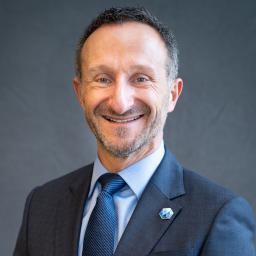Small Schools Sharing Meaningful Conversations
When leaders from “small schools” (with enrollments under 150) get together, as they did last March for breakfast at the Prizmah Conference and at previous Prizmah gatherings in recent years, the conversation never stops. In two weeks, many of these leaders will convene again at a retreat in Austin to continue sharing ideas, brainstorming strategies to address shared challenges, and working with each other towards greater sustainability.
No doubt, some of them are already getting ready to pack. They are bringing their most “intimate” institutional documents: budgets, school handbooks, by-laws, etc. They are coming ready to open up and share.
Some of the challenges facing these schools are unique to their size: training faculty to manage multi-age classrooms, having to reach every eligible family, meeting the needs of all students with limited faculty, dealing with false perceptions of the school, attracting Jewish studies and Hebrew staff in areas without a large Jewish population. Many of the issues they will discuss—from fundraising and endowment-building to attracting and retaining staff—are relevant to every Jewish day school.
For schools with small enrollments, whether they are the only Jewish school in a small Jewish community or a “niche” school in a community with many schools, remaining sustainable depends on breaking down isolation--on not “going it alone.” Small schools know better than most that they are intricately connected to their community and that their success requires deep, meaningful engagement with all their stakeholders, from parents to faculty to synagogues and the broader community.
What makes this gathering special—and what makes it a model that Prizmah seeks to promulgate—is that the participants are themselves setting the agenda and delivering the majority of the content. We are thrilled that independent school advancement guru Starr Snead will be joining the group. The planners have told us to keep outside speakers to a minimum, though; they want to learn from each other. Breaking down that sense of isolation, opening lines of frank communication, and real grassroots networking are at the core of this event.
Personally, I am delighted to be able to join these schools in Austin. I believe deeply that small schools have a lot to offer the broader Jewish day school field and that the needs of these schools and others can be well met through just this type of focused networking and sharing. It is truly an inspiring way to begin life after the rush of all the fall holidays, to return to our routines with the support that comes from connecting with peers.
I must admit that my head is still ringing with the tunes from the High Holy Days, particularly the Yom Kippur piyyut, “Mar’eh Kohen,” which describes how glorious the high priest (Kohen Gadol) appears as he leaves the Holy of Holies in peace, whole, as it were. We sing this in the middle of the musaf service, when our hunger is at its worst and our energy most depleted. It is almost as if we are seeing the Kohen Gadol himself, that we are celebrating with him, accompanying him back to his home, where he will return to the peace of everyday living removed from the life-and-death intensity of the Holy of Holies.
The contrast between the solemnity and solitariness of the high priest in the Holy of the Holies and the exuberant, crowd-raising chorus depicted in the piyyut is striking. While the high priest can only perform his service alone on behalf of the entire community, it is the people themselves who help him make the transition back to reality. Judaism is not a religion of solo stars or “individual contributors.” We are sustained by the strengths of our communal endeavors and by the way we cultivate connections and community. My hope for the year ahead—inspired in no minor way by the Small Schools Retreat—is that across the day school field we are able to nurture those connections that lead to true sustainability.




